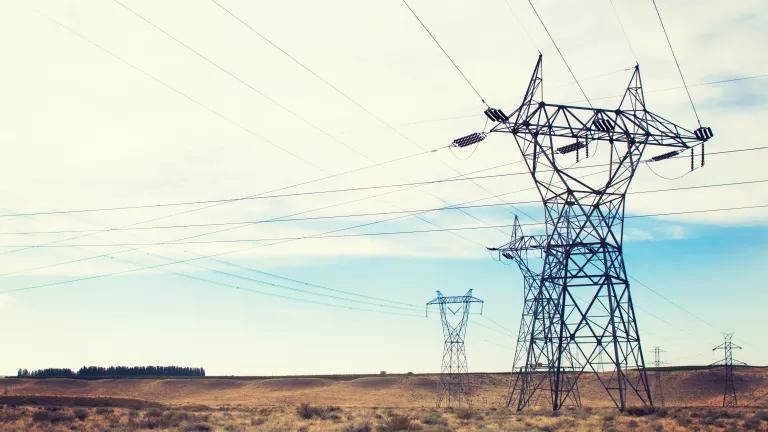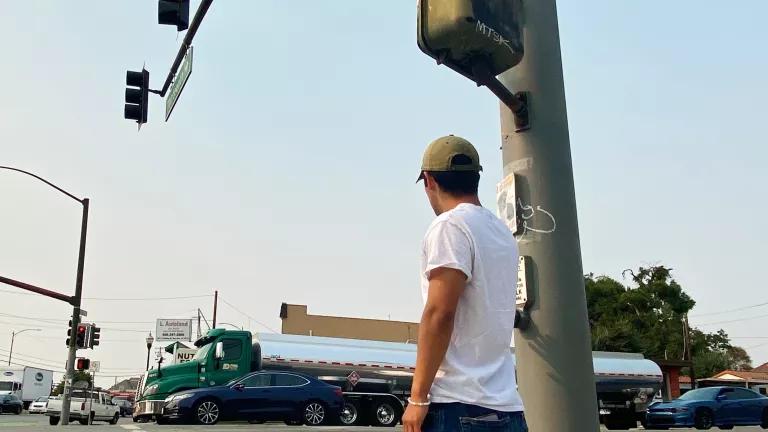NRDC Sues U.S. DOT as the Gateway Project Stalls

With the government shutdown over, at least for now, NRDC, on January 28, 2019, filed a lawsuit in the Southern District of New York under the Freedom of Information Act. The reason? To find out why the Trump administration has prevented the Environmental Impact Statement for the Hudson Tunnel—part of the urgently needed Gateway Project—from being published.
Despite the President’s call for faster environmental reviews of projects, the White House seems to have subverted the review process to slow down a project he doesn’t want to move forward.
A major, and probably the most critical project for the nation’s economy, is building a new tunnel under the Hudson River. According to the draft Environmental Impact Statement, the existing tunnel, over 100 years old, suffered serious damage during Hurricane Sandy, and its replacement is critical for the health of our economy. When the tunnel needs to be closed for safety reasons, as it did after Sandy, the cost to the economy is estimated at over $100 million a day.
Timeline of Events
The environmental analysis of the Gateway project was slated to be completed on March 30, 2018, according to the White House website, which was perfectly in step with the President’s demand that project reviews be finished in no more than two years.
All was well, everything was apparently on time, but then the Department of Transportation went mum. Despite it now being 10 months later, the March 30th date had, until recently, still been listed as the deadline with no new notations added. Over the past six weeks, the deadline and status dates were recently removed from government dashboards.
NRDC, which supports the Tunnel’s construction and recognizes its necessity, requested last spring that the Department of Transportation provide an update on the status of the project. Crickets. In September, we filed a Freedom of Information Request, which required by law a response from the agency in 30 days. Crickets.
The major concern centers on how the Trump administration may have stymied the environmental review process – jeopardizing the economy of the New York region and the nation.
NEPA—National Environmental Policy Act
The administration often plays fast and loose with the facts dealing with NEPA, which is designed to ensure decisions made by federal agencies consider environmental impacts. The administration has previously highlighted three projects as “evidence” for proposing radical changes to the environmental review process—in the name of “speeding up,” but really steamrolling, the review process. Their rationale was categorically false, and we called their bluff.
Now, the administration is changing its tune—apparently slowing down the NEPA process, at the expense of millions of rail users.
Make no mistake, NEPA is essential to ensuring that federal projects consider the environmental impact of their actions and give the public a chance to comment on the effects of a proposed project. In this case, the Hudson Tunnel will improve the environment and decrease carbon pollution by preventing commuters and Amtrak users from being diverted to polluting airplanes and automobiles.
One of the many false statements in the State of the Union last year was that it takes 10 years to perform environmental reviews to build a simple road. But a White House study shows that most environmental reviews, even for the biggest project, takes much closer to the goal of two years. Ironically, the critic who gave the President the idea of “Two years not 10” said of this project:
“The importance of Gateway is undeniable. There are no serious arguments against the project. Nor are there any serious alternatives. Delay in starting work will only raise costs, drag down the regional economy, and cause environmental harm.”
This FOIA lawsuit should lead to the public knowing the truth—and this urgently needed project moving forward once and for all.



